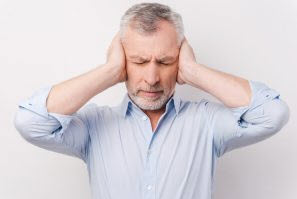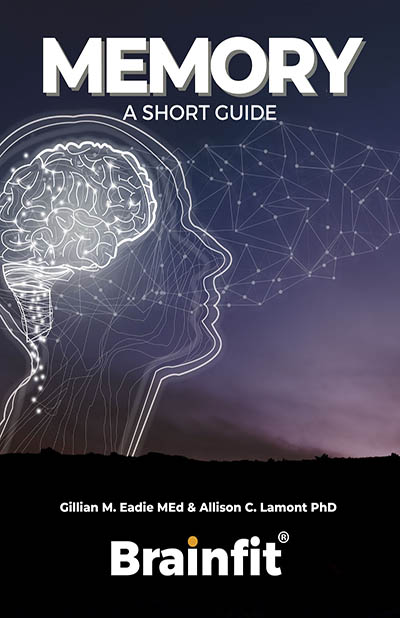Do you hear ringing, buzzing or other noises in your ears (or your head)? You may be one of the estimated 10-15% of our population who lives with tinnitus. Over the age of 60, this number goes up to 20%. Most of the time tinnitus is temporary or manageable but it sure can be annoying. What do we know about how it affects memory and concentration?
tinnitus. Over the age of 60, this number goes up to 20%. Most of the time tinnitus is temporary or manageable but it sure can be annoying. What do we know about how it affects memory and concentration?
Anecdotally my clients with tinnitus tell me tinnitus often interferes with understanding speech, attention to tasks, concentration and can increase frustration. Unfortunately, tinnitus commonly interferes with sleep and relaxation, and is increased by stress. Can you see the negative spiral? But take heart –hearing aids, masking noises such as a fan or nature noises, acclimatization therapy and relaxation exercises can help.
There have been a small number of studies investigating a link between tinnitus, memory and attention. These studies show that tinnitus does affect the way people process information, but researchers were unable to rule out contribution from other factors (such as hearing loss, general intelligence and mood).
Tinnitus is common with people who have hearing loss, and incidence of hearing loss increases dramatically as we age. There is strong evidence for a link between hearing loss and memory problems, with emerging research showing hearing aids reverse this negative trend.
Here are my recommendations if you are bothered by tinnitus
- Get a full audiological evaluation (not just a free hearing check/ hearing screening test). This will give you a baseline, check on whether further referral is needed, and give you an understanding if hearing loss could be causing your tinnitus.
- If you have hearing loss – try hearing aids. Quite a lot of people find they help with tinnitus. No guarantees, but I’ve had many people break down in tears telling me how much the hearing aids have helped with their tinnitus.
- Book in for a tinnitus consultation with an Audiologist who specializes in tinnitus. They can explain what we know about tinnitus and discuss strategies to reduce it.
- Try using masking noises like static, rushing water or music to help you get to sleep. We are all better humans with a good night’s sleep.
- Treat yourself to something that is relaxing and healthy- a hot bath, light exercise, massage. Anything that is good for you and relaxing is good for reducing tinnitus.
 This article was written by Teresa Burns, Doctor of Audiology and Director of Teresa Burns Hearing Ltd, in Auckland, New Zealand. You can learn more about her at teresaburnshearing.co.nz
This article was written by Teresa Burns, Doctor of Audiology and Director of Teresa Burns Hearing Ltd, in Auckland, New Zealand. You can learn more about her at teresaburnshearing.co.nz





I have had tinnitus for years – a buzzing which never goes away- however I also now have pulsatile tinnitis – 24/7 heart beating in both ears and just to add to these annoyances, more recently I am hearing music when there is none being played – a selection of four tunes, one of them bagpipes and woe is me another is the Australian anthem !!! I never have a quiet peaceful moment. We live by the sea and I would love to hear the waves again – not the pseudo sounds in my ears. Fortunately my sleep is not badly affected by all that is going on in my head. (yet?)
This serious tinnitus you describe is truly a burden! I checked and The U.S. Centers for Disease Control estimates that nearly 15% of the general public — over 50 million Americans — experience some form of tinnitus. Roughly 20 million people struggle with burdensome chronic tinnitus, while 2 million have extreme and debilitating cases. It doesn’t help to know you have company, I know. In New Zealand they estimate 1 in 10 people deal with it on a daily basis.
I have significant tinnitus and was lucky to be fitted for super hearing aids. I can testify that once a hearing loss is remediated by hearing aids the tinnitus fades to nothing and only appears at sleep time when there’s a quiet room and I’m settling down to sleep. Having not been bothered by it all day, I can easily disregard this small amount
They say one of the major issues of tinnitus is a sense of helplessness to change it. Once strategies like a white noise or boosting of the hearing loss using properly fitted hearing aids are in place, there comes a sense of achievement of control which solves this major issue.
This is excellent advice – thank you for sharing it. I do hope this may help others who are suffering this debilitating condition.
I have had tinnitus for the best part of 50 years – I am 70 now. I think the onset of tinnitus must have been during my years in the Armed Forces, being subjected to loud and explosive rifle and artillery fire. There were times when I felt like bashing my head into a wall, to stop the ongoing “Cicadas”. Fortunately those instances were rare. My coping mechanism is simply to ignore the constant buzzing – especially when – by reading copious articles on the internet – I learnt that to date there has not been a true remedy researched and found in medical circles. Interesting was also the fact – as I understood it – that the ringing is not in your ears so much, as it is in your head, your brain. I have just bought a German author’s Kindle book (Maria Holl) that deals with mitigating tinnitus with a specific tinnitus breath therapy. I’ll see, how that goes.
Years ago following some personal stress I developed loud tinnitus. It just wouldn’t go away, I felt like I was going mad. A friend mentioned that her GP, who I know, had told her that tinnitus is often caused by stress. Anyway, I worked out that was my trouble, when away from the cause, the tinnitus stopped. However, from that time it would reoccur with seemingly no cause.
I learned a relaxation technique – involving counting down arms, legs, abdomen, chest, head – 8 7 6 5 4 3 2 1 . With practice I can stop the tinnitus at about 6 or 5,
Its such a relief. I can also stop cramp with it.
Do let us know? I am sure there will be a lot of interested readers.
This is very sound advice – thank you for sharing it. Stress and anxiety are the enemies of brain and memory processing so everything that can reduce stress will have other benefits as well as reducing tinnitus.
I’ve had tinnitus for 3 months now. I visited already over 5 Ent and I checked already my jaw. The last Ent said to me tinnitus is caused from you muscle issues on the neck. I got tinnitus during my workout in the gym. I am 34 years old and I’ve trained for over 15 years. So the problem is that I am not concentrating during my day. Something is wrong with me and I can’t find some cure to fix my concentration. Ok the tinnitus still here but it is not so very loud that it makes me feel bad. Only my concentration is affected and I can’t live with this feeling. Has someone any advice?
Hello Sotiris. I can see you are very worried about this, quite understandably. Anxiety can cause a lot of issues and will certainly affect your concentration. I see that you have already consulted specialists related to the tinnitus; have you considered talking with someone trained to help you sort out the stress and anxious feelings you have? Do your workouts include relaxation by any chance? That may help you in the first instance. https://www.brainfit.world/trouble-focusing/